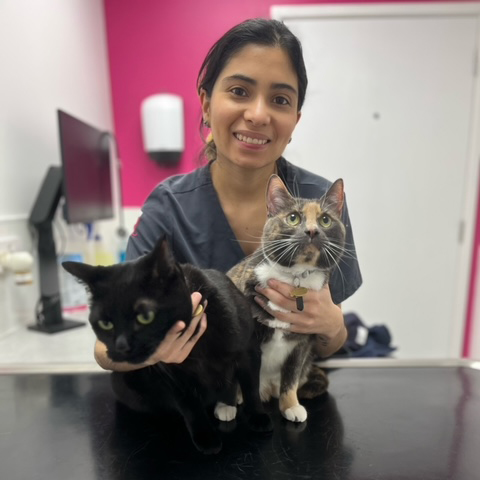What is acupuncture?
Acupuncture is a traditional Chinese form of energy healing that has been used to successfully treat a variety of chronic or painful conditions and geriatric ailments.
It involves inserting very fine needles into specific acupuncture points around the body, which can relieve pain by blocking pain signals to the brain and encourages the body to release natural pain killers called endorphins.
Acupuncture for dogs and cats can relieve pain and help treat many chronic illnesses. It has been proven to work along with conventional medicine and treatment plans, and in some conditions, it may be used as a sole treatment. Acupuncture can also minimise or reduce the requirement for medications which may have undesirable side effects.
Which conditions can Acupuncture treat?
Acupuncture can treat many different disease including, but not limited to:
- Pain Management from conditions such as ageing, arthritis, surgical recovery, hip dysplasia and Intervertebral disk disease (IVDD)
- Gastrointestinal disorders such as inflammatory bowel disease and pancreatitis
- Cardiovascular disease
- Immunological disorders
- Behavioural disorders
- Skin disorders such as atopic dermatitis and allergies
- Neurological disorders
- Endocrine disorders
Acupuncture is very safe when performed by trained veterinary surgeons. Sessions normally take 30 minutes in a consultation environment of which you are welcome to stay in the room with your pet. Acupuncture is usually very well tolerated by pets and in most cases does not need any kind of sedation or anaesthetic, but each case is dealt with individually depending on how your pet feels in the veterinary environment. Here at Harrison Family Vets, we use lots of calming pheromones and white noise machines along with many other elements as standard with our Fear Free practice accreditation, so we do strive to make the experience as stress free as possible for your pet.
Some pets only need one treatment, however usually a course of 4-6 sessions provides the best effects for your pets, with possible maintenance sessions after the initial course. It really depends on the individual pet and how they respond, but we will recommend the best treatment plan for your pet and their condition.
Many insurers now cover alternative therapies; however we always recommend checking your policy to be sure.

